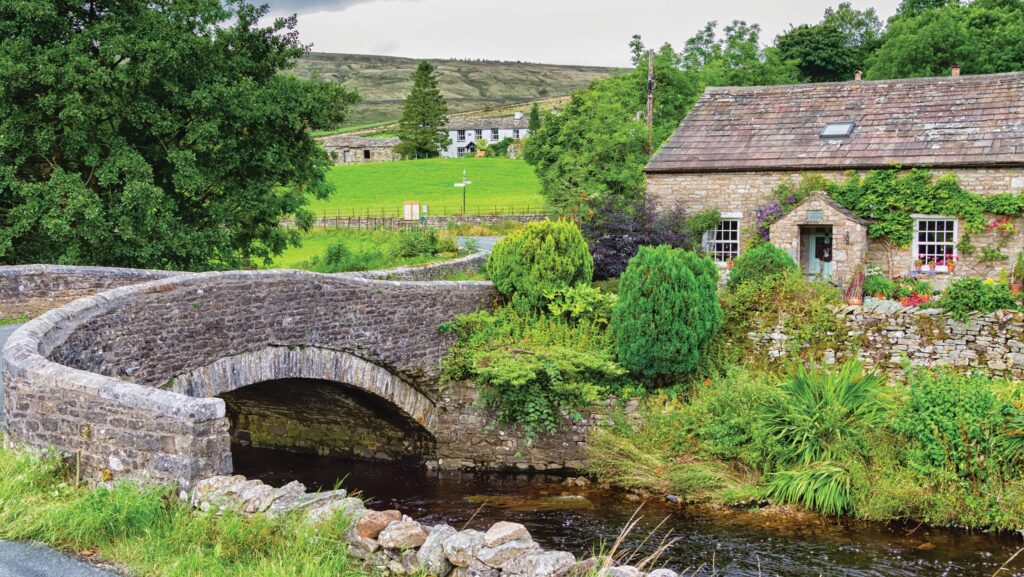Advisers highlight legal issues following election call
 © Adobe Stock
© Adobe Stock The Finance Bill received royal assent on 24 May and included most of the main changes in the Budget. As well as cuts to national insurance rates and an extension to the fuel duty freeze, these included:
- A reduction in the higher rate of capital gains tax for residential property gains from 28% to 24%, affecting disposals made on or after 6 April 2024
- The abolition of multiple dwellings relief for stamp duty land tax (SDLT). This relief allowed the value of residential accommodation in a sale or transfer to be averaged, often saving substantial amounts of SDLT. The change applies to land transactions where the effective date is on or after 1 June 2024, subject to transitional arrangements
- Increases in the thresholds for the high income child benefit charge for 2024-25 and subsequent tax years, allowing households with a higher earner to retain more of their child benefit entitlement.
See also: Time to plan for threat to holiday let tax regime
Some other measures announced alongside the Budget were not included in the bill, leaving important questions unanswered.
Furnished holiday lets
The planned abolition of the furnished holiday letting (FHL) rules with effect from 6 April 2025 is one of the measures not included, with important negative tax implications for many diversified farm businesses.
FHL benefits include possible capital gains tax (CGT) and inheritance tax (IHT) reliefs, capital allowances and the ability to offset interest against business income.
It is yet to be seen whether the next government will pick up this plan, which was designed to encourage more availability of rental and open market accommodation to local people.
Luke Cochrane, a director of tax adviser Land Family Business, says: “We would not be surprised if the FHL rules were tweaked rather than abolished, and any changes in April 2025 are now looking unlikely given legislative timescales.
“The new government could amend these reliefs without the need to abolish the FHL regime, however we await any future announcements with anticipation.”
Land and property transactions
“It is difficult to plan for any upcoming changes, but we can ensure that the current legislation is applied to transactions completed prior to the next Budget,” says Luke.
“The main advice is, for any land and property sales in the pipeline or in progress, to ensure that these are completed as soon as possible to lock in the current tax treatment.”

© Tim Scrivener
Tax treatment of environmental schemes – questions remain
The Treasury papers released alongside the Budget included the welcome extension of agricultural property relief (APR) from inheritance tax (IHT) to land in certain environmental land management schemes, but this measure was also not included in the Finance Bill.
It was only mentioned that it would be in a future bill, so was not necessarily expected in this one, says Luke Luke Cochrane, a director of tax adviser Land Family Business.
“I wouldn’t say it’s holding up decisions, as many of these schemes are being operated alongside the main farming enterprise, so IHT is not necessarily the main driver, and tax should not be the main driver in making these decisions.
“Currently, the only guidance received states that it will only apply to schemes operated with, or on behalf of the UK government, devolved administrations, public bodies, local authorities, or approved responsible bodies, and therefore other schemes would not automatically qualify at present, but we await further details as and when they are published.”
However, the question of whether the payments for ecosystem services such as biodiversity net gain, nutrient neutrality and water neutrality will be treated as income or capital gains remains outstanding, with the present government having committed only to establishing a working group on this important issue.
Potential tax changes
At accountant Albert Goodman, managing partner Iain McVicar says: “If our government changes to Labour, they have said that they are unlikely to have a Budget before September.”
He also points out that the Labour Party has stated that there will be no increase to income tax or national insurance in that Budget.
Capital gains tax concerns
Tax advisers expect that a Labour win will likely bring more scrutiny to the CGT regime, with a possible increase in their rates, a measure which has been mooted over the past few years as a result of reviews by the Office of Tax Simplification.
“It has been suggested that this could be at a person’s top income tax rate, so up to 45% tax,” says Iain. “The highest CGT rate for land sales is currently at 20% of the gain, and for house sales, at 24% of the gain.
“For those ceasing a business, there is also currently the ability to reduce CGT to 10% through the use of Business Asset Disposal Relief on qualifying assets.
“If you are considering selling land or other property where CGT will be an issue, it may be prudent to do this before a Labour Budget, where the circumstances allow.”
Review, don’t rush
Agricultural lawyer Alex Robinson, a partner and head of farms and estates at Wright Hassall, advises against trying to rush into changes to business structures or landholdings in fear of agricultural property relief (APR) from IHT being removed.
“Instead, take the opportunity to review with your professional advisers your business, its structure, land ownership, partnership agreements (usually the issue is absence of a written agreement), wills (which work with your partnership agreement) and powers of attorney, and update them, or get them in place,” she suggests.
“Discuss the future, but with an acknowledgement that you may have to be flexible and change your plans when the election result is known and any anticipated policy changes can be analysed.”
Assess assets and ownership
Mark Chatterton, business services director at accountant Duncan & Toplis, says the prospect of a change of government puts the focus more sharply on asset ownership and plans for the future.
“My main advice is to consider asset ownership in 2024 and whether it is suitable for the future,” he says.
“Although APR is currently 100%, is it right that the older generation continue to own assets? If they are doing less in the family business then they should consider passing on ownership.
“This will give the younger generation more motivation and often stimulate faster growth of the business.
“They [the older generation] may well not need or be getting a return from this asset having built up wealth elsewhere. In many cases, pension or investment income will be enough to fund them for their remaining years.
“The current tax rules are favourable, with holdover relief available for business assets that are handed on, so no CGT is paid on the transfer.
“This means there is no tax free uplift on death, but this is fairly irrelevant if the next generation have no intention of selling.
“Assets that might be sold could remain owned by the older generation to eventually get this tax free uplift on death. Ownership will then pass according to their will.”
Mark warns that HMRC and the Land Registry are so far behind these days that estates are taking two or more years to sort out.
“Less assets involved on death will make the estates easier to wrap up – the easiest scenario would involve one house, owned and lived in by the older generation, and a few bank and savings accounts.”

© Tim Scrivener
Uncertainty can cause delayed decisions
“With an uncertain future, businesses and/or people can often remain stagnant in order to see how the land lies once the future is settled,” says Amy Cowdell, a partner at law firm Shakespeare Martineau.
Amy echoed the importance of ensuring assets are held by the right people, or in the right entity, and suggested that areas to watch include:
Inheritance tax
There has been long-standing speculation on the balance between trading and investment assets in farming and estate businesses, and their tax treatment.
“Would a new government change the split for testing whether a business is wholly or mainly trading [instead of holding investments] to 80% trading/20% investment as opposed to the current 50/50 split?
“An Office of Tax Simplification review suggested this split should be enforced.
“If it is, lots of farming businesses will need to review their affairs and potentially split the investment elements of their businesses from the trading to preserve the inheritance tax (IHT) relief on the trading side.”
Environmental schemes
Labour appears more committed to an environment agenda than the Conservatives, so there is probably no reason to be put off going forward with eco-system services and schemes for fear of a Labour government’s tax policies, suggests Amy.
Development land prices
“Labour had earlier suggested capping prices for land sold for development, which would seriously impact landowners.
“This idea was advanced by the Letwin Review in 2018, but unsurprisingly, ignored by the government.
“As land prices are such a factor in the high cost of building houses, and Labour are strongly committed to building 1.5m houses, there must be a fair chance that a cap will be introduced in some form.
“Having said that, there is no manifesto yet, so it’s very early days for predicting legislation, if indeed Labour were to get in.
“It does not seem that they have landowners particularly in their sights, but food security does appear to be higher on their agenda.”
Make the most of grants and schemes
Agricultural lawyer Alex Robinson, a partner and head of farms and estates at Wright Hassall, also advises farmers and landowners to look at all available grant schemes to see what could benefit their farms, even in the short term.
“Those grants may not have longevity with a change of government, so get them locked in,” she suggests.
Pension issue
A pension issue which the government was due to fix through legislation has been left in limbo by the election announcement.
It affects people who took what is known as an enhanced protection option from 2006 onwards, to ensure that they were not disadvantaged by the government’s imposition of a £1.5m cap on the amount that could be withdrawn tax-free.
However, errors in the original legislation mean that this protection is not available in some cases, an issue that was being worked on in the run-up to the election announcement.
“There may not be many farmers caught by this and we still await the changes to the legislation to correct the position,” says Luke Cochrane of Land Family Business.
